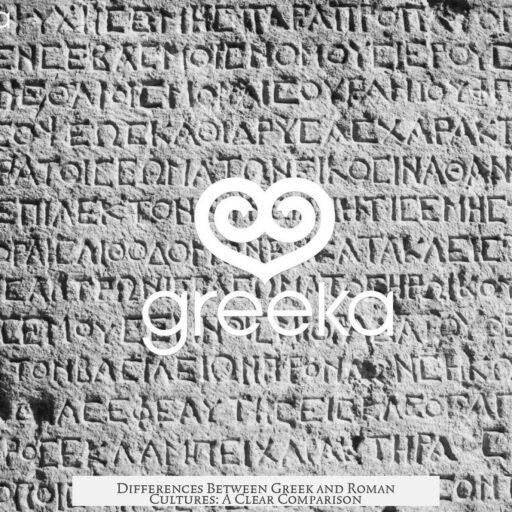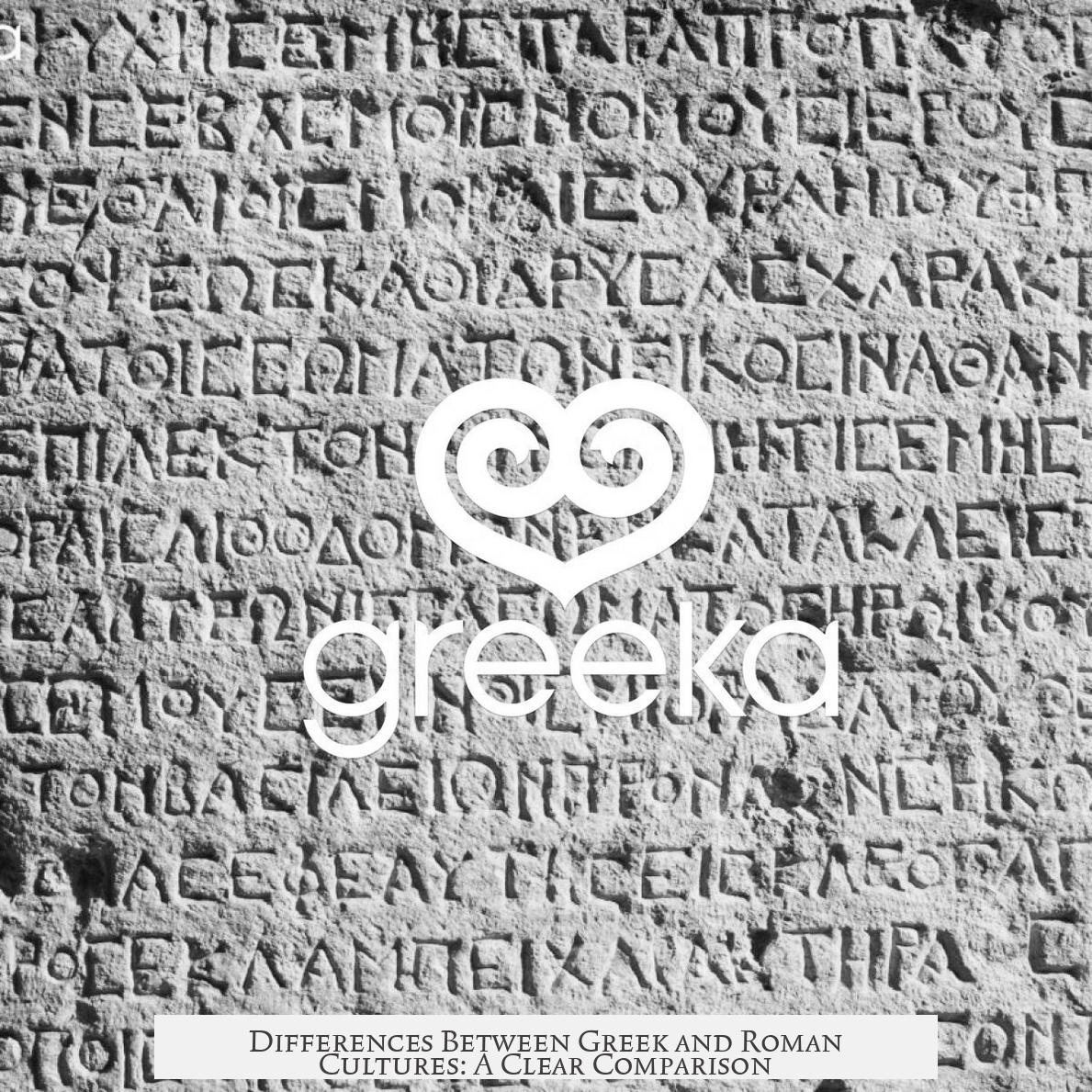The differences between Greek and Roman cultures lie in their origins, identities, religious beliefs, languages, military systems, and historical development, though centuries of interaction created a complex Greco-Roman synthesis.
Greek civilization precedes Rome, with city-states (poleis) emerging in the 9th to 8th centuries BCE. Rome’s foundation myth dates to 753 BCE, with clearer expansion from the 5th century BCE. Greeks developed independent polities, while Rome grew from a city-state into an empire, integrating diverse peoples.
The Greeks initially viewed identity ethnically and exclusivist, tied to birth in a particular city-state. Citizenship was hard for outsiders to obtain. Greeks shared common language, religion, and cultural practices as markers of identity. By contrast, Roman identity was civic and inclusive, defined by citizenship granted regardless of ethnic origin.
Religious frameworks also differ. Romans identified their gods with Greek counterparts, e.g., Jupiter with Zeus, but significant differences remain. Mars, the Roman god of war, held a dignified status, unlike the Greek Ares, who had negative traits. Some Roman deities like Janus lacked Greek equivalents, highlighting distinct native traditions. Roman religion was polytheistic with syncretism, readily absorbing gods from conquered peoples.
Language played a distinct role. Latin was dominant in the western Roman empire, while Greek prevailed in the east. Educated elites often mastered both languages, especially during the Imperial Age. Roman aristocrats commonly spoke Greek, engaging in Greek philosophical traditions. Emperor Marcus Aurelius exemplifies this bilingual intellectual culture, authoring philosophical works in Greek.
Military organization evolved differently. Around 400 BCE, both Greeks and Romans employed similarly equipped soldiers with spears, helmets, and shields. Later, Greek armies adopted Macedonian reforms, using longer spears (sarisa) and dropping shields in some units. Romans developed a mixed infantry system involving sword-wielding hastati and principes, spear-bearing triarii, and skirmishers called velites. Roman armor progressed to include lorica segmentata—banded iron plating—and lorica hamata—chainmail—by later centuries.
Geographically, Greek and Roman cities were relatively close, with strong Greek presence in southern Italy and Sicily, termed Magna Graecia. Romans came from Italic native populations, mixed with Greeks and others. Greeks likely descend from Aegean prehistoric groups and “sea peoples” around 1200 BCE.
Culture and identity blurred over time. Romans deeply adopted Greek culture, law (e.g., Twelve Tables modeled on Greek codes), philosophy, and art. Greek culture spread further across Roman territories, especially as Rome conquered Greek regions. In the Imperial period, a unified Greco-Roman elite culture emerged. The late Roman Empire shifted identities further during crises, merging into Byzantine culture, where Greek and Roman identities coalesced.
The distinctions between Greeks and Romans vary across centuries. A Roman in 400 BCE differs substantially from one in 400 CE, often more than between contemporary Greeks and Romans. The constant cultural exchange and political integration make simple categorization difficult.
- Greek civilization is older, city-states arose in 9th–8th centuries BCE; Rome founded 753 BCE.
- Greek identity was ethnic and exclusionary; Roman citizenship was civic and inclusive.
- Romans adopted Greek gods but retained distinct deities and meanings.
- Latin dominated the west, Greek the east; elites often bilingual.
- Military systems diverged—Greeks used sarisa spears; Romans adopted mixed troops and advanced armor.
- Greek culture heavily influenced Rome, creating a Greco-Roman synthesis over time.
- By late antiquity, Greek and Roman identities merged into Byzantine civilization.




